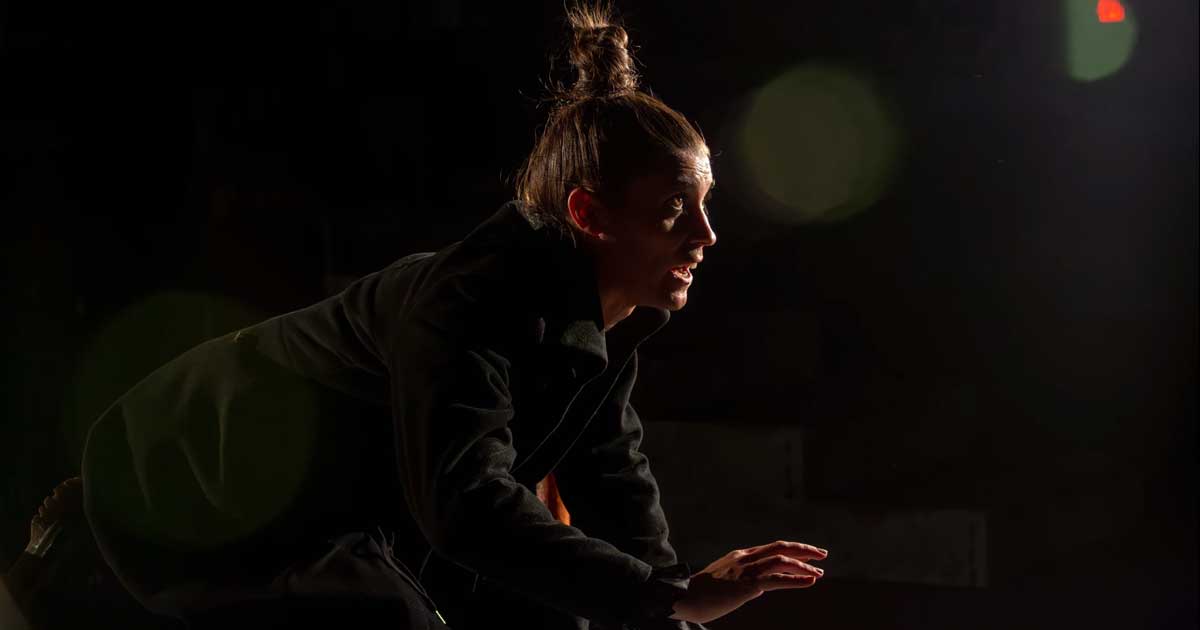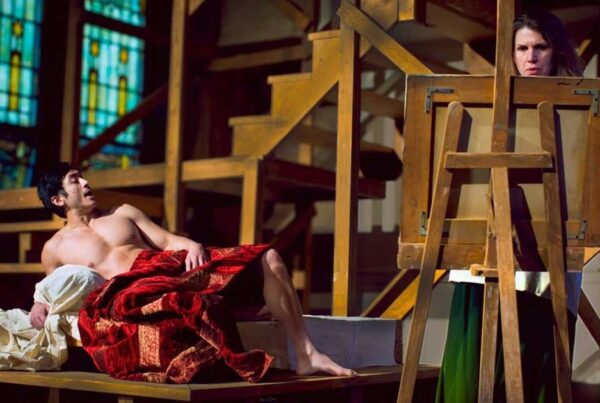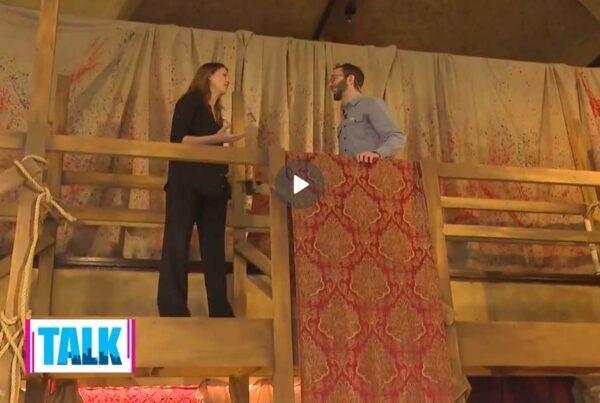
90.5 WESA – You clearly get something a little extra when you stage a play outdoors at the Carrie Blast Furnaces National Historic Landmark. The rusty, looming remains of U.S. Steel’s Homestead Works practically exude metaphors that would add layers to any play — no less so than when the stage work in question is among the most venerable in the English language.
Quantum Theatre first turned the trick in 2019 with “King Lear” (with bonus points for the largely rewilded grounds cast as a storm-wracked heath). This month, Karla Boos’ troupe is back at Carrie with that other Shakespearean Leviathan, “Hamlet.”
Directed by Jeff Carpenter, it’s a strong production, with Carnegie Mellon graduate Treasure Treasure electrifying in the title role. Other nice touches: the portable troughs, set pieces that serve as both coffins and thrones, among other furniture, and corrupt Claudius’ crown of black felt, fit for “a king of shreds and patches.”
And it’s always hard to watch “Hamlet” (or indeed, most Shakespeare) without a line or two grabbing you by the throat anew. This time, for me, it was: “In the corrupted currents of this world / Offense’s gilded hand may shove by justice, / And oft ‘tis seen the wicked prize itself / Buys out the law.”
Still, the production’s highlights inevitably include Pittsburgh legend Tony Ferrieri’s scenic design and the Carrie setting with which it so seamlessly blends. Some of those ready-made metaphors lurk even in the safety signage posted by site steward Rivers of Steel: “Restricted Area — Do Not Enter” reads, in context, as fair warning to a hero intent on unearthing deadly secrets.
Then there’s Carrie Blast Furnace No. 7, the metal behemoth that towers menacingly upstage, only more noticeably after dark, when Quantum bathes it in rich purple light. In our world, it’s a vestige of a bygone era, animated by Rivers of Steel’s tours. In the context of this “Hamlet,” its time-worn bulk might seem a symbol of the corrupt, but still undeniably potent, state. Or it may represent all the evil that the aggrieved, often righteous — but deeply conflicted — protagonist vainly wishes to undo.
Carpenter, in his program note, offers his own take on how Pittsburgh’s heavy industrial past resonates with Shakespeare’s (centuries-older) Danish monarchy: “Do you hear the ghosts? Shall we accept their labels, roles, traditions, customs, grievances and grudges?”
(Quantum, it should be noted, originally intended to stage the production at one of Carrie Furnaces’ indoor sites, but moved outdoors when the building was found to be too hot, among other environmental issues.)
Back in workaday Rankin, the production is also a reminder that the Carrie Furnaces site (where steel was last made nearly four decades ago) is more than a historic landmark. Since Rivers of Steel took it over, in 2010, it’s also been the venue for many community and arts events, including signature initiatives like the long-running artist residency Alloy Pittsburgh and the annual Festival of Combustion (coming up Oct. 7).




